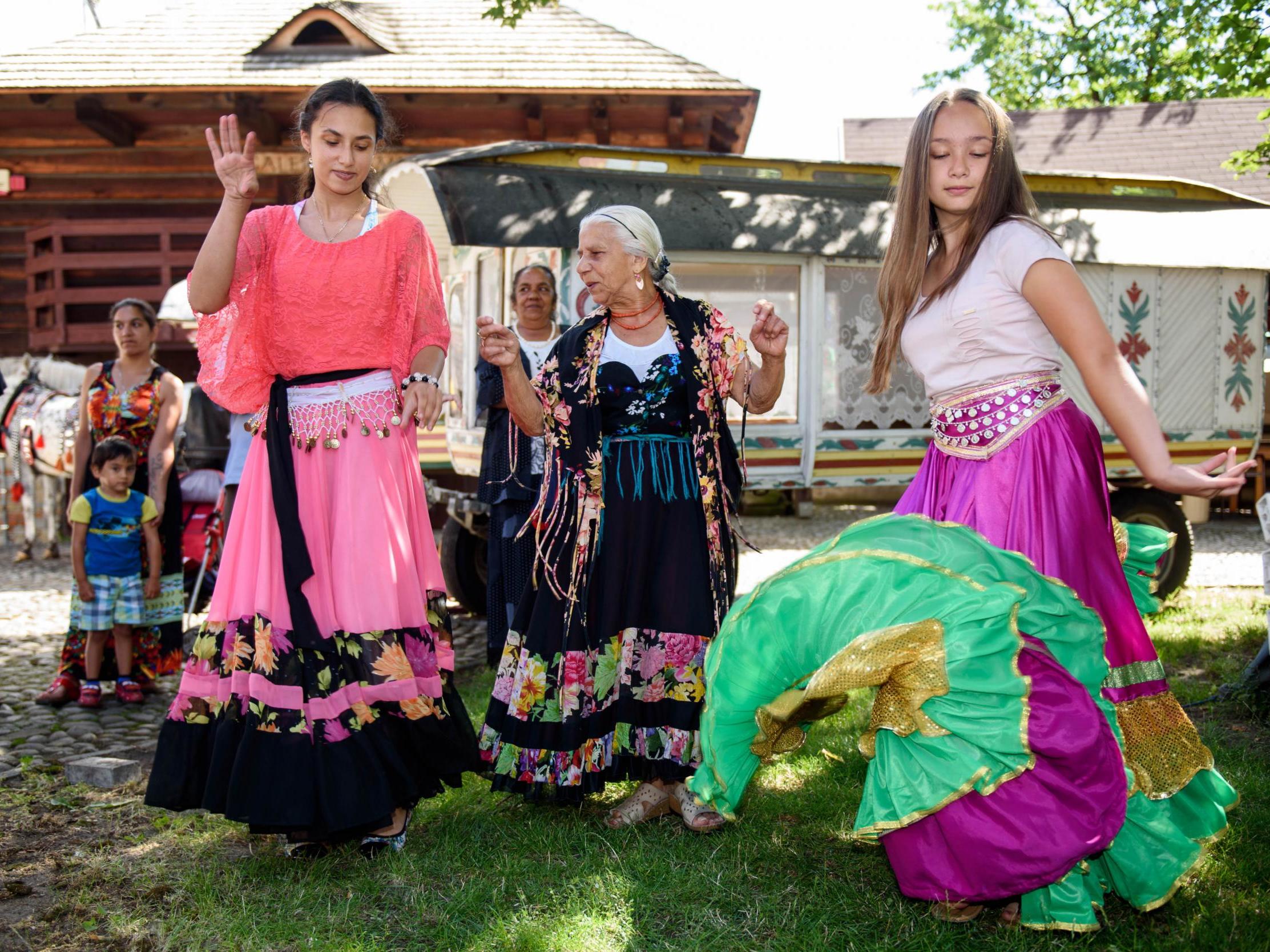The Independent's journalism is supported by our readers. When you purchase through links on our site, we may earn commission.
We need to talk about the rising wave of anti-Roma attacks in Europe
The intensification of antiziganist sentiment has become a hallmark of authoritarianism, yet it continues to go ignored


The Roma community is Europe’s largest and most persecuted minority. Since the arrival of their nomadic ancestors from the northern Indian subcontinent in the Middle Ages, Romani people have been subjected to intense periods of discrimination, from forced expulsions in the 16th century to Nazi genocide in Second World War. Throughout Europe, antiziganist (anti-Roma) prejudice has lingered on largely unscathed to this day. But as hate crimes and attacks against the continent’s 10-12 million Romani inhabitants are on the rise, it becomes increasingly vital for us to tackle the issue and openly acknowledge its existence.
Far-right populism is gaining momentum across the west, and, unsurprisingly, it has been accompanied by an upsurge in attacks against Romani people. From France to Hungary, Roma communities and camps have been subjected to violence and threats.
Only last month, the Council of Europe held a conference in Odessa where heads of Ukrainian, Moldavian and Slovakian police discussed ways to prevent antiziganist attacks. Italy in particular has seen an intense concentration of anti-Roma hate crimes over the last few months, largely perpetrated by a coalition of neo-fascist gangs and angered locals in the Roman suburbs.
A now-viral video of an Italian teenager standing up against the far-right protests, who accused them of “only wanting votes” and exploiting local economic issues to incite antiziganist racial hatred, has emerged as a flickering light in a dark tunnel. All of this is made invariably worse when you consider Matteo Salvini, Italy’s deputy prime minister, and his attitude towards Romanis in Italy. He has done everything from calling for the sterilisation of a Bosnian Roma mother who’d been accused of theft to recently signing a pledge to introduce a census on Romani camps in Italy, a proposal which has drawn severe criticism from many of the country’s leading political figures.
As one can expect, such a growing tide of hate is having a profound impact on Roma citizens living in the country, many of whom are living in fear. Dijana Pavlović, a Serbian-born Italian actor and prolific Roma activist who is a spokesperson for the anti-racist Kethane movement, has particularly felt this burden. In a recent conversation I had with her, she revealed the personal impact of the tense climate. “It feels like living through a war. The number of verbal insults and attacks has definitely increased over the last few years, and I’m frankly afraid for my child’s future.”
And yet, in spite of such horrifying accounts, nowhere near enough awareness is being raised about the situation facing the European Roma community. Such silence fuels a deep ignorance about the Romanis, which consequently allows the promulgation of many harmful misconceptions. Romani people have a long history and strong culture, with many diverse subgroups (including Sintis, Ashkalis and Kale) and languages. From flamenco to art to some of the words in English itself, the Roma community has shaped the fabric of Europe’s identity. The horrific persecution they’ve endured, especially under Nazi Germany, has similarly gone under the radar.
Pavlović herself attests to the incredibly harmful by-products of public silence. “In Italy, very few people know anything about Romani people’s history and identity. When you also have the [Italian] mass media leading a hate campaign against the Roma community for 15 years, it’s clear that we’ve become a national scapegoat.”
But, even more so, the intensification of anti-Roma sentiment is an ominous sign of times to come, which is why there’s an increasing need for us to speak up about it. For the far right, antiziganism is a particularly easy form of discrimination, since it manages to neatly lace together various racist, classist and ethno-nationalist sentiments.
The numerous negative stereotypes associated with the Roma community, namely based on their reputation for being “criminals”, “subversives” and “outcasts”, ensure that antiziganist arguments have a strong resonance with the general public. When you factor in the long history of anti-Roma prejudice and widespread ignorance about the community, antiziganism remains one of the classic tricks in the far right’s book.
To add to this, anti-Roma discrimination often goes unchecked because there is a striking lack of opposition from many on the left, who are often much more reticent to defend Romanis than other minorities. Many progressives indeed fall prey to some of the same arguments made by right-wing populists, who justify antiziganism on the grounds of “reducing crime” or “protecting law and order”.

Every individual, regardless of their background, must be held legally responsible for their actions, but to passively justify antiziganist discrimination on the basis of a minority of Romanis who commit crime is even more shocking when it comes from those who purport to oppose all forms of bigotry and hatred.
Indeed, given the high levels of poverty and disenfranchisement within Europe’s Roma community, it would be good for us on the left to acknowledge the insidious consequences and vicious cycles caused by systematic oppression and look for solutions for the integration of some of society’s most marginalised members.
Spain, for instance, is a glowing, albeit still imperfect, example of how successful government policies combined with the relentless efforts of the country’s Romani community can bring about many positive and much-needed advancements.
Ultimately, antiziganism is given a free pass in our society, and it’s for this reason that a rise in anti-Roma hate crimes has become a hallmark of authoritarianism. If we truly want to stand for social justice and defeat the growth of the far right, we urgently need to speak out on this issue. Martin Niemöller’s First They Came comes to mind…
Join our commenting forum
Join thought-provoking conversations, follow other Independent readers and see their replies
Comments
Bookmark popover
Removed from bookmarks